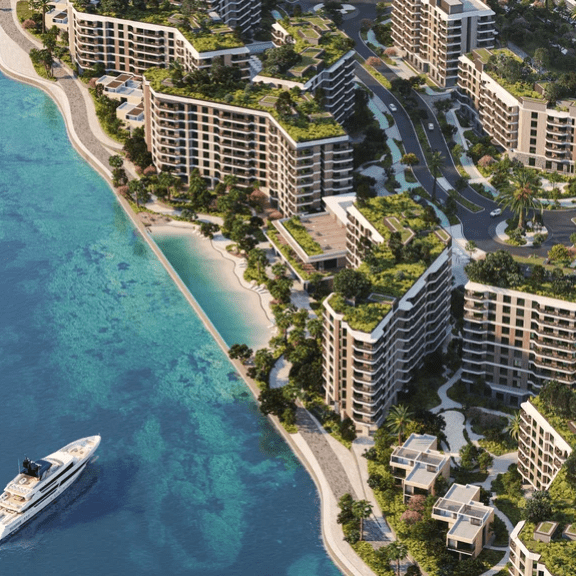Dubai is an amazing city inhabited by 3 million people. This place stands out, inter alia, as a city where the majority of its inhabitants are foreigners. Anyone dreaming of relocating to the United Arab Emirates for a while or even forever will need a residence permit. We will tell you how to get it and the validity terms of different types of visa.
Why Do Foreigners in Dubai Need a Residence Permit?
Obviously, tourists spending their vacations in Dubai do not need a residence permit. For instance, US citizens can stay in the Emirates with their US passport for up to 30 days provided that their passports are valid for more than six months from the day when they entered the UAE. They get their visa for free right at customs. However, anyone planning to stay in Dubai for a longer period – to study, work, open a new business or just live there will have to take care of their residential status.
A resident visa entitles you to:
- work and invest;
- open a bank account;
- take out a consumer or car loan from a local bank;
- get a driving licence (tourists from about 40 countries, including the USA, Canada, and Australia, can drive using their national driving licences. However, when they acquire residency status, they need to replace the licence with a local one);
- take out medical insurance and gain access to the local healthcare system; and
- enrol their children into a private or a state school.
Photo: v.ivash (Freepik)
Types of Residence Visas
To get a residence permit in Dubai, you need a sponsor. An employer, a close relative, an educational establishment or the potential resident can act in that capacity. The term of the visa sponsored by someone is usually one, two, or three years. The so-called Green and Golden visas sponsored by their holder secure residency for five or 10 years with the option to extend them.
The Federal Authority for Identity, Citizenship, Customs & Port Security also grants standard work visas which tend to be valid for two years. Public or private sector employees can get standard visas, while green and gold visas are available for qualified professionals, freelancers, the self-employed and business partners.
A separate type of visa is available for household staff. The UAE law classifies 18 occupations as such, including house maids, gardeners, drivers, and – based on local specifics – employees who look after horses and falcons.
New buildings in the UAE
What Documents Do I Need to Get a Residence Permit?
As well as specific documents, such as a certificate issued by a university which indicates the duration of studies for students or a university diploma and income statement for employees, anyone hoping to get a residence permit in Dubai needs to prepare the following set of basic paperwork:
- a recent colour photo against a white background,
- a photocopy of their passport,
- a medical certificate,
- an application for an Emirates ID,
- medical insurance,
- an entry permit, and
- a notarized residential property rent agreement or a certificate of property ownership.
Photo: drobotdean (Freepik)
Two items on this list need more detailed clarification – the medical certificate and the Emirates ID. Any potential UAE resident over the age of 18 years must undergo a medical check-up to prove that the applicant has no dangerous infectious diseases, including HIV and tuberculosis. You can apply for your Emirates ID online, but will need to submit your biometric data – fingerprints and signature – at one of Dubai’s customer happiness centers.
You can apply for a visa on the website of the Federal Authority for Identity, Citizenship,Customs & Port Security (ICP), via the official mobile app of the UAEICP available in AppStore and Google Play, or on the website of the General Directorate of Residency and Foreigners Affairs. You can also submit the paperwork through customer happiness centers and accredited typing offices.
Requirements on Visa Applicants
To get a 5-year green visa, freelancers and the self-employed also need to submit
- a work permit issued by the Ministry of Human Resources and Emiratisation;
- a higher education diploma for a degree no lower than Bachelor or Specialist; and
- confirmation of stable annual income of at least AED 360,000 (USD 98,000) obtained by the self-employed person over the past two years, or confirmation of their solvency for their entire stay in the Emirates.
You can get a one-year residence visa in Dubai if you work remotely for a foreign company registered outside the UAE. For that purpose, you will need to submit
- an employment contract or the papers confirming your ownership of the company for one year
- a statement on income of USD 5,000 per month
- a banking statement for your account for the past three months
Photo: lookstudio (Freepik)
Qualified specialists eligible for a green visa will need the following:
- a valid employment contract,
- a higher education diploma for a degree no lower than Bachelor, and
- a salary of at least AED 15,000 (USD 4,000) per month.
Green visas are granted to employees who fall under the first three of the nine levels in the International Standard Classification of Occupations issued by the International Labour Organization. This includes
- lawmakers, enterprise managers and directors;
- professionals in science, technology and the humanities; and
- technical specialists in science, technology and the humanities.
Photo: senivpetro (Freepik)
Investors and business executives can get a green visa for five years provided that they can prove that they are investing in the UAE economy. To do that, they will need
- a permit issued by the Federal Authority for Identity, Citizenship, Customs & Port Security
- a certificate confirming the investment
- a permit to invest from the local authorities
Unlike individuals eligible for the aforementioned ‘self-sponsored’ visas, students need to secure financial support from third parties. This support can come from their parents provided they have their own residence permits, or from the student’s college or university.
A student visa is granted for one year, which may be extended for a similar period if the student continues their education. Until they have completed their studies, members of the student’s family also have the right to stay in the Emirates if they can rent suitable accommodation.
Another category of long-term visas is available for the retired. People over the age of 55 or anyone who has worked for more than 15 years – not necessarily in the Emirates – can apply for a renewable 5-year visa.
This visa is granted to anyone who has property in the UAE worth AED 1,000,000 (USD 272,000), a bank account with the same amount, or a monthly income of AED 15,000 (USD 4,000) – that would suffice for Dubai. In other emirates, you would need an income of AED 20,000 AED (USD 5,445). The retirees would also need to submit their bank account statement for the past six months to the immigration authorities.
Who Is Eligible for a Golden Visa?
A green visa is good, but a golden visa is better. However, it is a lot harder to get one: while the requirements are more stringent, such a visa lasts for up to 10 years. So who can get a golden visa?
Real estate owners can get a five-year golden visa. They will need a certificate from Dubai Land confirming that the property/properties owned by the applicant is/are worth in total at least AED 2,000,000 (USD 545,000). It is worth noting here that mortgaged real estate also counts provided that the mortgage was issued by one of the banks approved by the local authorities.
International entrepreneurs are also eligible for a five-year resident visa if they intend to develop a technical or innovative project in the Emirates. A local auditor will need to value the business as worth at least AED 500,000 (USD 136,000). The entrepreneur will also need consent on collaboration from one of the local business incubators.
Anyone depositing funds in state investment funds is eligible for a 10-year golden visa. You need to invest at least AED 2,000,000 (USD 545,000). In this case, debt financing does not count.
You can also own or co-own a company worth at least AED 2,000,000 (USD 545,000). Another option is a statement from the tax authority confirming that the specific company pays at least AED 250,000 AED (USD 68,000) in annual taxes to the budget of the UAE.
Photo: senivpetro (Freepik)
Another category of people eligible a 10-year golden visa are outstanding specialists; for instance,
- doctors, scientists, and inventors;
- artists and cultural figures;
- executive managers;
- engineers and researchers;
- athletes and coaches;
- top students and alumni of the world’s leading educational establishments;
- humanitarian workers; and
- medical specialists who have proved that they are efficient in crises.
A resident of the UAE can act as the sponsor for their family members provided that they earn at least AED 4,000 (USD 1100). If the cost of accommodation is covered, a lower salary – at least AED 3,000 (USD 820) – would also suffice. All family members over the age of 18 must also undergo a medical check-up.
Note: UAE residents who spend over 180 consecutive days outside the country forfeit their residency status. That is why when – and if – they need to go back, they will have to re-apply for a visa. This rule does not apply to golden visa holders and anyone who leaves the country for medical treatment or education.
In a Nutshell
It is never quick and easy to relocate to a different country and sort out all the paperwork. However, if you are targeting Dubai, you can choose from various options for your move to the Persian Gulf shore. It goes without saying that you will have to comply with certain requirements, but they are doable.
Cover photo: v.ivash (Freepik)




